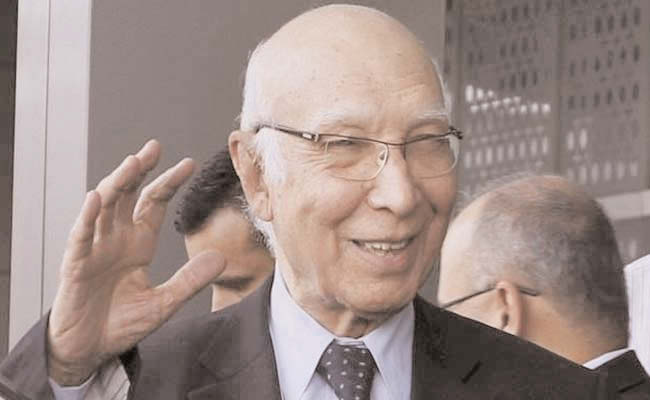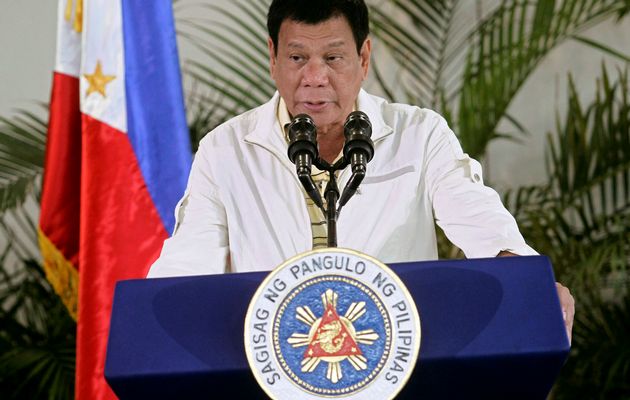
It would be worth watching how America would manage the contradictions between economic multipolarity and military unipolarity in the years to come. Its sustenance as a global hegemon will be largely determined by both domestic and geopolitical actors notwithstanding its near successful sojourn from colony to superpower in its long history
How enduring is “American hegemony” or “empire” in a world with a “rising China“, globally “assertive Putin” and an endemic crisis in West Asia and Africa wherein the US is being constantly projected more as an imperialist power than as a champion of liberal democracy and global justice? This overarching question gives rise to a number of subsidiary questions through which America’s continued legacy of “unipolar world” could be seriously examined.
Immanuel Wallerstein rightly notes, “Since the end of the Second World War, the geopolitics of the world-system has traversed three different phases. From 1945 till 1970, the US exercised unquestioned hegemony in the world-system. The period from 1970-2001 was a time in which American hegemony began to decline, but the extent of its decline was limited by the strategy that the US evolved to delay and minimize the effects of its loss of ascendancy. In the period since 2001, the US has sought to recuperate its standing by more unilateral policies, which have, however, boomeranged -indeed actually accelerating the speed and depth of its decline.”
Even it is strongly argued that America has unwittingly morphed into a new and strange kind of a political system where both the economic and political powers are increasingly conjoined. It is gradually losing the power to respond to its own populace the way it did in the recent past and virtually leading to a kind of inverted totalitarianism, leaving no space for the ever-growing home for the world’s most promising liberal democracy. The Summer Issue of the Journal of the American Academy of Political Science in 2011 brought out that “it is a common theme that the US, which only a few years ago was hailed to stride the world as a colossus with unparalleled power and unmatched appeal, is in relative decline, ominously facing the prospect of its final decay”. The business of America, is business as Calvin Coolidge once proudly remarked, has now turned this statement into a mere tautology. Currently America is either engaged in direct or proxy wars around the world to secure its narrow interests and it is finally leading to its decline than many pundits believe it to be.
However, the interesting part is that how long American hegemony will last will not be determined by China’s rise or an ever-growing threat of global terrorism. Noam Chomsky arguably notes, “the commonly drawn corollary that power will shift to China and India is highly dubious. They are poor countries with severe internal problems. The world is surely becoming more diverse, but despite America’s decline, in the foreseeable future, there is no competitor for global hegemonic power.” It is true that emerging global powers like India and China are pressed to be seriously involved at their homeland because of their chronic problems than America in the years to come. Their journey to claim global ranks has very recently begun unlike the US, as historian Geoffrey Warner recorded how President Roosevelt was aiming at United States hegemony in the postwar world. By then China and India were just planting their roots for homegrown nascent political systems to just begin their nationhood. It seems an uphill task for both these nations at least for some good decades though they may keep growing faster than a declining US economy at the moment.
The American empire is not a traditional empire, but rather a sui generis one which it has acquired inadvertently in course of time with its sheer economic, military, political and finally, through its technological might. “No other country in the world possesses, has ever possessed, or is likely to possess, in this century such a world straddling vehicle for the enforcement of its will. More to the point, the US-dominated system shows no signs of falling apart. Even the revelations that America and its English-speaking allies have been spying on the leaders of their NATO peers have not led to calls for the dissolution of NATO. The American system may not last forever, but its remaining life may be measured in centuries rather than decades. Cycles of hegemony turn very slowly because systems of hegemony are very robust. The American power network is much bigger, much stronger and much more resilient than the formal American state as such” (Babones).
Indeed, it would decline, but this duration of fall would be longer than expected. Even experts like Barry R Posen states that the US enjoys the “command of the commons” – command of the sea, space and air. But technically, air space belongs to respective countries and commons in the case of sea, but space are areas that don’t belong to one nation, though there are limits assigned as per international norms. But when it comes to command of these commons either forcefully or through mutually beneficial ways, it is only the US that can steer the wheel further and can make it operational. In “contested zones”, around the world like “South China Sea”, the US military might have a disadvantage and it is always advisable to engage its power selectively in such cases.
Unlike the US, China is constantly facing tough resistance and competition from its immediate neighbors like Japan, South Korea and India on all fronts while trying to emerge as a global power and from the Asian baggage. It is likely and historically recorded that the Asian powers would more welcome a US leadership than a Chinese one. The recent escalations of conflict in the South China Sea underline how China’s adversaries are willing to engage or trying to resort directly to the US assistance. Thus the strategic challenge posed by China is exaggerated and the lasting impact combined with acceptability of its authoritarian growth model may not permeate across. China’s alarming human rights violation records and an authoritarian political system have its own perennial problems which might shake the Middle Kingdom in the years to come. But for now China is managing its global clout with a relatively peaceful and stable political system, though a sustained demand for change and transparency are rising every passing day. Moreover, despite China’s call for a multipolar reserve currency system, it seems the lack of stable alternatives might help dollar continuing to dominate the global financial system at the moment.
Barack Obama, the 44th President of the US, has brought a new age into the history of the country by successfully closing the “tumultuous era” during which his Republican predecessor George W Bush had primarily set the nation on a confrontational course in its global relations both with its allies and enemies. But in true sense of the term, close on the heels of his two terms of presidency, Obama could hardly come out of the burden of the past.
Tall claims that US hegemony is coming to an end seem absolutely premature. When many in global politics thought about the replacement of the Washington Consensus with an immediate rise of the Beijing Consensus, experience shows that the Chinese annual growth rate is not very encouraging. Also the emergence of the China model in contrast to the free market liberal democratic paradigm constantly promoted by the US leadership with a mega agenda is not deepening across the nations, though there has been a regular and potential disdain developed about the way the US is behaving. Experts feel that the US will surely demonstrate great resilience as the country is best endowed with economic flexibility, highly luring to the migration of the best of the skilled manpower; granary of the best universities of higher learning and finally it possesses “the most networked society and economy in the world” (Anne-Marie Slaughter). Though China might grow much faster than the American economy, yet it remains to be seen how long it would continue.
The US has the option of more margins to choose from a big basket than any other nation in the world and that is where its leverage lies in global politics. Acclaimed American intellectual Joseph S Nye Jr advocates that “power in a global information age is distributed like a three dimensional chess game. The top military board is unipolar, with the United States far outstripping all other States, but the middle economic board is multipolar, with the United States, Europe and Japan accounting for two-thirds of world product, and the bottom board of transnational relations that cross borders outside the control of governments has a widely dispersed structure of power”.
With this scenario in mind and an effort to intensify the prospect of a multipolar world under the rubrics of BRICS, ASEAN and a large array of international NGOs and civil society organizations which play a significant role in global governance, it is really impossible for the US to go alone or even with its allies in remaining as the hegemon for a longer period.
It would be worth watching how America would manage the contradictions between economic multipolarity and military unipolarity in the years to come. Its sustenance as a global hegemon will be largely determined by both domestic and geopolitical actors notwithstanding its near successful sojourn from colony to superpower in its long history. It remains a contested and open question how long America will rule at the top or will there be an imminent fall in the days to come.





Be the first to comment